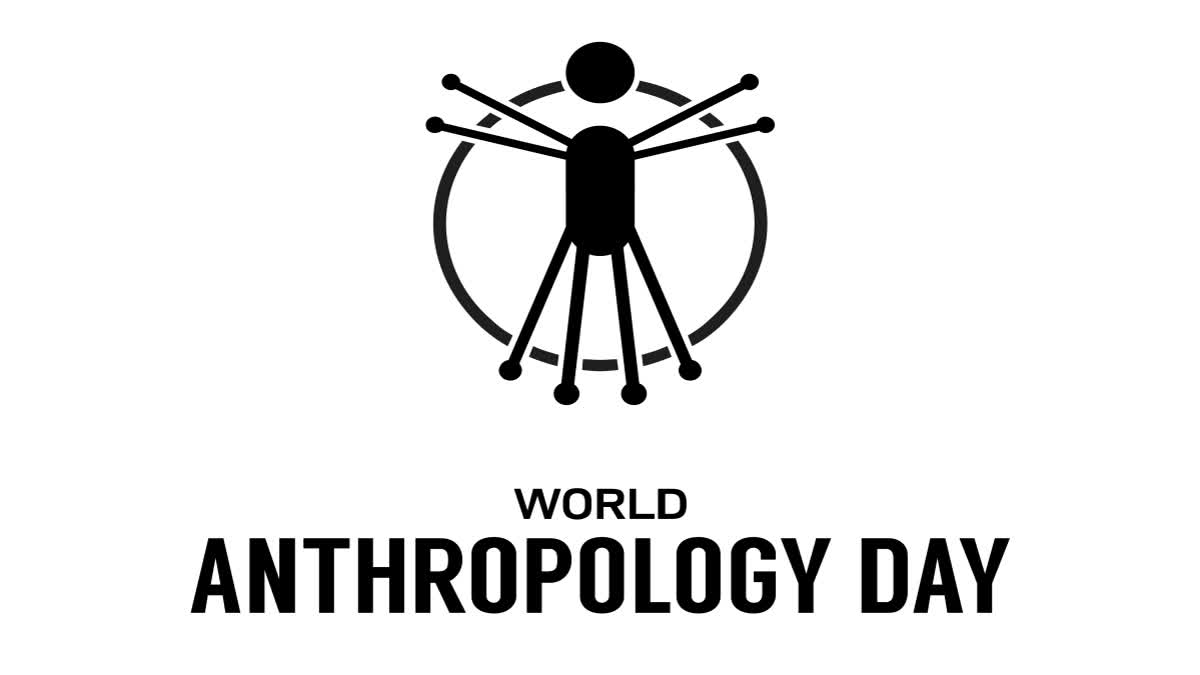Hyderabad: World Anthropology Day, observed on the third Thursday in the month of February, is a platform for anthropologists worldwide to celebrate their discipline and disseminate its significance to the broader community.
What is Anthropology? Anthropology is the practice of studying human society, behavior, and culture, both in the past and in the present. It takes a holistic view of the human experience, seeking to understand the diversity, individuality, and origin of our species. Investigating the intricacies of human life, anthropologists examine history, community structure, and cultural practice to understand our shared heritage and to understand the world we live in today.
History- Established in 2015 by the American Anthropological Association (AAA), World Anthropology Day was originally named National Anthropology Day but was later renamed to reflect the global relevance of anthropology.
Significance- This day holds significance in raising awareness about the value of anthropology in contemporary society, providing anthropologists with a platform to showcase their research and engage with diverse audiences, including scholars, students, and the general public.
One of anthropology's greatest accomplishments is its emphasis on cultural diversity. Anthropologists have demonstrated how historical, environmental, and social factors influence cultures all over the world and how cultural practices are frequently firmly ingrained in regional customs and beliefs. Anthropology can aid in fostering intercultural understanding and facilitating communication between individuals from various backgrounds by researching cultural differences.
World Anthropology Day timeline:
- 5th Century: The Romans and Greeks Study History: The study of history becomes an integral part of Roman and Greek cultures.
- 18th Century: Scholars Aim to Understand Human Behavior: Age of Enlightenment scholars seek to understand society and behavior patterns that follow definite principles.
- 19th Century: Evolutionism and Diffusionism: Two main theories, evolutionism and diffusionism, attempt to explain how societies develop.
- 20th Century: Culture-centered Studies Emerge: Anthropologists begin to understand different cultures independently, without comparing them to European culture.
Interesting Facts of World Anthropology Day:
- Anthropology studies the origin and development of human cultures as well as societies. It examines characteristics in the past and present communities using different scientific methods.
- Studying cultures shows the learned behaviors of a people, their belief systems, institutions, languages, and social structures. The field investigates how various people in the world lived over time. The study is required to present human subjects in a clear and unbiased manner.
- Because of its holistic approach, anthropology contributes more than any other social science to resolving the impending ecological crisis facing the world.
- Some anthropologists study the detailed migration patterns of humans over the years.
- Anthropologists usually work as researchers or professors in universities.
Subfields of Anthropology- Anthropology encompasses various subfields, including sociocultural, biological, and archaeology, each offering unique perspectives on human behavior, evolution, and cultural dynamics.
- Sociocultural anthropologists analyse specific cultures, elucidate cultural variations, and study processes of cultural change and social transformation.
- Biological anthropologists explore human evolutionary biology through fossil analysis, genetic research, and comparative studies of human and nonhuman primates.
- Archaeologists delve into material remains to decipher cultural systems, technological advancements, and societal structures across different historical periods.
World Anthropology Day urges public engagement with anthropology, sparking curiosity and encouraging individuals to explore the discipline's myriad topics and potential career paths. By sharing research findings and insights, anthropologists not only enrich public understanding but also inspire future generations of scholars and researchers to contribute to the field's advancement.



